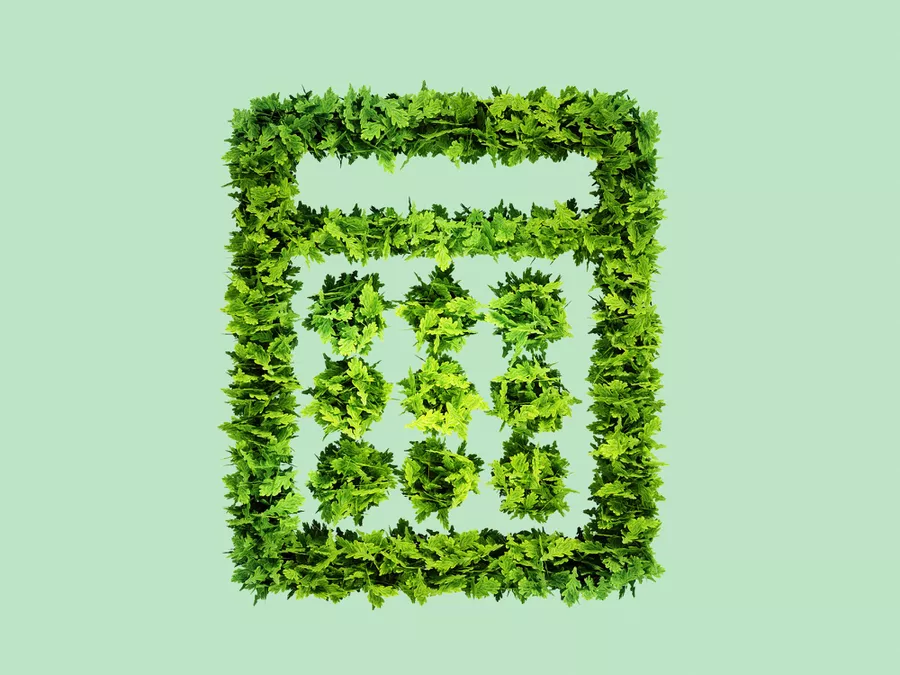How to Help the Planet – RealSimple
Click here to read the ORIGINAL ARTICLE: “10 Low-Cost and No-Cost Ways to Help the Planet in 2022.”
From climate change to plastic pollution and environmental destruction, the Earth needs your help. Taking action can be free—or even save you money.
By Mia Taylor. Wed February 16, 2022
The planet needs our help like never before. We’re at a critical turning point, not only with regard to the impacts of climate change, but also pollution from plastic waste, environmental destruction, and wildlife extinction.
Here are just a few of the most recent and startling developments:
- Last year was the warmest on record for the heat content of the world’s oceans and it was the warmest year on record in 25 countries, and in areas where 1.8 billion people live, according to CarbonBrief. The Arctic, in particular, is warming almost three times faster than the rest of the planet.
- 11 million metric tons of plastic pollution enters the ocean every year, and by 2030, the plastic pollution in rivers, lakes, and the ocean could increase to as much as 53 million metric tons.
- Earth’s creatures are on the brink of a sixth mass extinction, comparable to the one that wiped out the dinosaurs. We have already wiped out hundreds of species, and many more are nearing extinction due in large part to such human-driven activities as wildlife trade, pollution, habitat loss, and more.
These types of headlines can indeed be discouraging. And it’s easy to give up hope and believe there’s little to nothing you as an individual can do—that these issues are beyond your control or ability to impact. But that couldn’t be further from the truth. As legendary primatologist Jane Goodall famously said, “The greatest danger to our planet is that we lose hope…Because, if we have no hope, we give up and stop trying to do our bit to make a difference.”
In fact, borrowing words from Goodall again, the small changes we make each day can lead to the kind of world we want in the future.
As each of us goes about our routines, from the moment we wake up until day’s end, we make innumerable decisions that have ripple effects. And we engage in actions and behaviors we have long since ceased thinking about, which impact the world around us. From the toothpaste and shampoos we use to how we buy food and the modes of transportation we rely upon; we all can have a positive or negative impact on the planet.
The good news is that it’s far easier than you think to help the planet, and it doesn’t have to cost a great deal of money to take action or make a difference. In fact, some of the most significant steps we can take this year to help the planet are also among the easiest, and least costly. (Many are even free or will save you money over the long run.)
“It’s a total misconception that acting for the planet has to be expensive,” says Sheila Bonini, senior vice president for private sector engagement at the World Wildlife Fund. “In fact, being environmentally responsible will often save you money.”
Here are 10 low- and no-cost ways to help the planet in 2022, courtesy of three global organizations working to address the most pressing challenges of our time: Ocean Conservancy, World Wildlife Fund, and Earth Action Network.
Reduce food waste

Globally, we waste close to 40 percent of all the food that’s produced. Additionally, discarded food represents roughly 10 percent of all global greenhouse gas emissions, says Bonini. To put that statistic in perspective, the emissions from the food we throw away is nearly four times greater than the emissions generated by the entire global airline industry.
“So this is an area where we can all really step up, and you will actually save money,” says Bonini. “Preventing food waste can be as easy as taking a few minutes to plan out your meals before going grocery shopping, making good use of your freezer for leftovers, and trusting your senses on those ‘best before’ dates. Depending on the kind of item, many foods are still safe to eat days, weeks, or months after the ‘best by,’ ‘sell by,’ and ‘best before’ labels.”
Recycle smarter not harder

By now, most of us should be entirely familiar with concept of recycling, and are (hopefully) doing so regularly at school, home, work, and even while out and about. However, many of us remain unclear about exactly which items can be recycled through our local, or municipal recycling program. This lack of knowledge can lead to a great deal of misdirected waste that ultimately does not get recycled, says Britta Baechler, PhD, senior manager of ocean plastics research for the global non-profit Ocean Conservancy.
“Recycling systems and capabilities can be very different and will vary based on where you are,” explains Baechler. “This year, make it a point to learn the local recycling rules. You can often find this information online. Taking this step to increase your knowledge is free and will help you make sure that what you’re putting into your recycling bin can actually be recycled.”
Reduce, reduce, reduce…

Recycling is good. But reducing our waste is even better. And specifically we’re talking here about the amount of single-use plastics we rely upon in our everyday lives. Reducing ubiquitous plastic usage is essential to the health of the planet. Plastic has been found in every corner of the ocean, from the deepest trench to the most remote Arctic ice. Plastics have also entered the atmosphere.
More than 800 marine species are impacted by plastics, from the tiniest zooplankton to the largest whales, according to a UN report on marine debris. What’s more, according to the Marine Pollution Bulletin, more than 60 percent of fish studied globally contained microplastics.
There are numerous actions individuals can take to begin meaningfully drawing down our societal reliance on plastic. What’s more, many of these steps are free or will actually save you money when implemented on a daily basis.
“Carry a reusable water bottle with you instead of buying bottled water,” says Bonini. “Bring your own bags to the grocery store. If you’re grabbing take out, tell the restaurant you don’t need plastic utensils. In general, consider which items are truly necessary, and which can be skipped.”
In fact, avoiding plastic bottled water, when possible, is not only better for the environment and your bottom line, it can also be better for your health, adds Baechler.
“Drinking tap water instead of plastic bottled water can really reduce the amount of microplastics you take in,” says Baechler. “Folks who consume bottled water ingest 90,000 more microplastics every year then those who drink tap water.”


